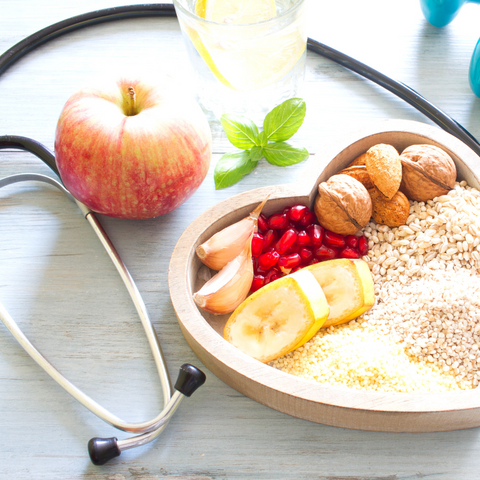We have all heard that cholesterol affects our body, but we can all agree that the more information available the more confusing the topic can get.
Simple, but concise information and a bit of guidance is all we ever need when dealing with our health.
In this blog post we will help you understand cholesterol a bit better and how you can continue to improve your health each and every day.
What is cholesterol?
Cholesterol is a waxy substance that your body requires to build cells and manufacture vitamins and other hormones. Your liver actually makes all the cholesterol you need, but you can also get in through the foods you’re eating such as meat, full-fat dairy and poultry. These foods, along with many others such as coconut oil contain your dietary cholesterol but are also very high in saturated fats which triggers your body into producing even more! Uh-oh
Why do we need it?
- Make up the outer layer of every cell in the body
- Insulate or coat our nerve fibres
- Make hormones
- Make bile acids which are essential for the digestion and adsorption of fats.
Types of cholesterol
Cholesterol is carried through the circulatory system on two lipoproteins: high-density lipoproteins (HDL), often referred to as “good” cholesterol, and low-density lipoproteins (LDL), also called “bad” cholesterol.
- HDL is labelled “good” cholesterol because it removes LDL cholesterol from the arteries and takes it to the liver, where it can be broken down and removed from the body.
- LDL is termed “bad” cholesterol because when there is too much of it circulating in the blood it can eventually build up in the form of plaque on the walls of your arteries raising the risk for heart attack, stroke, and peripheral artery disease.
Contributing factors
- Heredity: A condition called familial hypercholesterolemia (FH) may make some people genetically prone to high levels of bad cholesterol. If you have a parent, sibling, or child who has FH or who had a heart attack early in life, it’s recommended that you get tested for the condition.
- Smoking: Smoking doesn’t directly cause high cholesterol, but it does reduce your levels of HDL, ultimately removing the cholesterols protective effect in the body.
- Diet: The best way to lower your cholesterol is to reduce your intake of saturated fat and trans fat, this means cutting back on red meat, tropical oils, fried foods, and full-fat dairy.
What to do about it
Anyone can get their cholesterol checked, but it is particularly important for high-risk groups as mentioned above to speak to their doctor if they have concerns.
There are also several tests that you can get done:
- Total Blood Cholesterol: Think of this as your overall "score." This number is the result of a calculation that adds up HDL and LDL levels, plus 20 percent of your triglyceride level.
- HDL Cholesterol: You want this number to be higher, as a high HDL level is linked with good heart health.
- LDL Cholesterol: You want this number to be low as this is the cholesterol labelled “bad”
- Triglycerides: Normal levels of triglycerides vary by age and gender. Risk factors that can lead to high triglycerides include having diabetes, being overweight or obese, being sedentary, drinking alcohol in excess, and consuming a diet that is high in sugar, processed foods, and saturated fat.
Men should consume no more than 30g of saturated fat a day and women no more than 20g of saturated fat per day.
The Leahys Pharmacy team is here to help you in any way that we can. If you have any questions on this topic or would like to discuss this with a member of our expert pharmacist team drop in to one of our pharmacies today!
Check out our range of vitamins & minerals HERE
Read more on cholesterol HERE
Recommended Products
 |
Super Evening Primrose Oil 1000mg 10% GLA |
|
|
Garlic & Vitamin C 60 Pack |
|
|
Sona Omergan Omega 3,6,9 30 pack |





